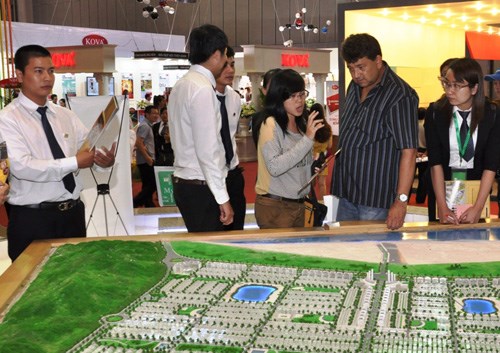Vietnam to allow more foreigners to buy property to boost stagnant market
Vietnam has eased restrictions on foreign ownership of property in an effort to lure the cash needed to revive a market saddled with oversupply since a real estate bubble burst in 2011.

The Southeast Asian nation has been battling with lingering bad debt after years of easy credit and lax oversight came to an end three years ago, sparking a crash in the property market and leaving the banking sector unable to provide the credit companies needed to grow.
Investors with business interests in Vietnam from Singapore, China and Japan were the most likely to buy property, attracted by the potential for higher yields in Vietnam than at home, property firms and analysts said. Singapore and Japan are the second and third biggest sources of foreign direct investment in Vietnam after South Korea.
Lawmakers amended the law on foreign property ownership on Tuesday to allow foreign investment funds, foreigners with valid visas, international firms with operations in Vietnam and overseas Vietnamese to buy residential properties. The changes will take effect in July 2015.
Overseas Vietnamese send home around $11 billion a year in remittances.
"A lot of that (remittance) money can go into property for them, so I think that's the big headline and the motivator for this," said Troy Griffiths, Deputy Managing Director of property firm Savills Vietnam.
The law, however, limits foreign ownership to 30 percent of an apartment building, and a maximum of 250 homes in one city neighbourhood "ward".
"If the government doesn't set limits, big investors or the Chinese could just sweep in and buy the whole of Hanoi if they wanted," Luu Minh Ngoc, CEO of Hanoi-based property firm Bac Son Group.
"So the limit on foreigners is appropriate and should only be relaxed gradually and in sectors."
The property market had shown signs of improvement before the changes. The value of property in inventory fell to 83 trillion dong ($3.90 billion) by September, from 170 trillion dong in March last year, according to local media.
Property market participants welcomed the new law as a boost to liquidity and to clearing some of the property from the market linked as collateral to bad debts.
Foreigners working in Vietnam have been permitted to own houses since 2009, but red tape and usage restrictions for foreign-owned houses dissuaded buyers, with just 100 out of some 80,000 foreigners managing to own house as of October last year.
Vietnam, Canada enhance cooperation, connections
Vietnam, Italy seek to further expand economic, investment cooperation
Vitenam, Italy seek to further step up locality-to-locality cooperation
Vietnam, Japan work to materialise comprehensive strategic partnership
Argentina hopes to foster economic, trade, investment collaboration with Vietnam
 Seminar held to promote Vietnam - Algeria economic relations
Seminar held to promote Vietnam - Algeria economic relations
 Vietnam, France enhance transport cooperation
Vietnam, France enhance transport cooperation
 Vietnam, Singapore deepen economic, energy cooperation
Vietnam, Singapore deepen economic, energy cooperation
 Vietnam keen on expanding trade, investment cooperation with Ireland: Minister
Vietnam keen on expanding trade, investment cooperation with Ireland: Minister
 International integration drives Vietnam’s economic growth
International integration drives Vietnam’s economic growth



